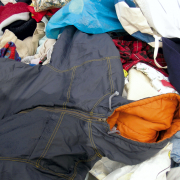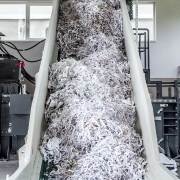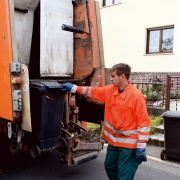Recyclers Urge EU Action to Protect Europe’s Plastics Recycling Industry from ‘Recycled’ Plastics Influx
In response to the ongoing negotiations on the Packaging and Packaging Waste Regulation (PPWR), EuRIC, representing the recycling industry, urges legislators to protect Europe’s plastics recycling sector and immediately address the massive imports of plastics labelled as recycled.
Imports of low-cost plastics, both virgin and plastics labelled as recycled, fail to contribute to EU’s circularity goals. Mainly imported from Asia, these plastics are processed under conditions that fall short of EU standards, with limited push for circularity of materials in their home countries. They’re not produced from EU plastic waste, and the countries they come from have not implemented circularity targets like the EU’s. As a result, European plastics recycling companies, despite having invested hundreds of millions of euros to meet circularity goals, are now forced to operate below their production capacity, with no signs of recovery in 2024 regarding the prices of recyclates.
Recycled content targets for plastic packaging have been instrumental in driving demand for recycled plastics and supporting these objectives over the last years. EuRIC insists that minimum recycled content targets for plastic packaging put on the EU market be met using post-consumer plastic packaging waste collected within the EU. Only if this core principle, enshrined in the proposed PPWR, were to be dropped, it is essential to ensure that imports of plastics labelled as recycled are subject to a proper traceability system to guarantee that they originate from recycling and meet minimum conditions in terms of environment, health, and safety. Failing to alleviate the unbalanced pressure on recyclers, risks Europe missing its legally binding recycling and recycled content targets, as well as the opportunity to become the first carbon neutral continent by 2050.
These proposed measures are also a matter of green industrial policy. Recycled content serves as a market signal which has prompted a surge in investment to build recycling capacity in Europe. This aligns with the objectives of the new Circular Economy Action Plan, ensuring that the EU takes care of its own plastic waste. Under this rationale, the EU has specifically banned exports of plastics waste to non-OECD countries, under the Waste Shipment Regulation. As a result, plastics waste will have to be recycled and marketed within the EU. Leaving European packaging plastics recyclers unprotected against a surge of plastics’ import from countries which often enjoy much lower energy costs and play by less stringent rules, not only harms the environment, but also inflicts a tragic blow to investment in Europe’s greentech industry.
Source: EuRIC (Brussels, February 23, 2024)









